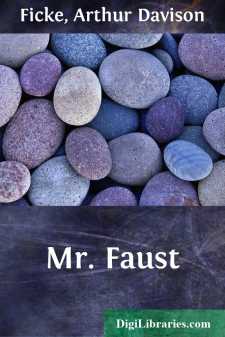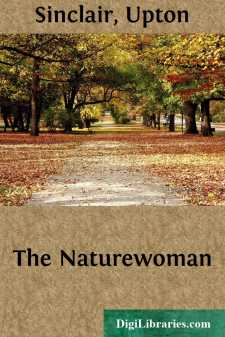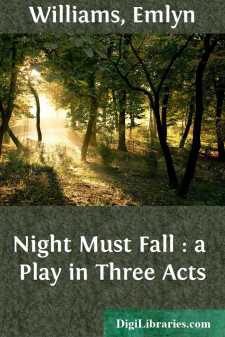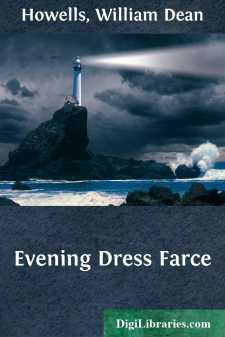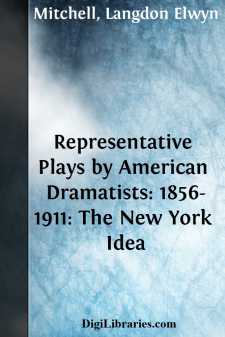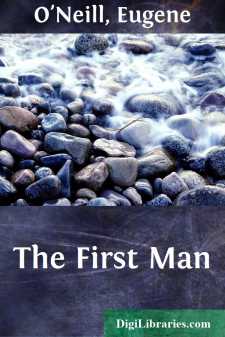Drama
American Books
Sort by:
by:
Upton Sinclair
ACT ISCENE I[Shows a primeval forest, with great trees, thickets in background, and moss and ferns underfoot. A set in the foreground. To the left is a tent, about ten feet square, with a fly. The front and sides are rolled up, showing a rubber blanket spread, with bedding upon it; a rough stand, with books and some canned goods, a rifle, a fishing-rod, etc. Toward centre is a trench with the remains...
more...
INTRODUCTION Through all the work of Arthur Davison Ficke runs a note of bigness that compels attention even when one feels that he is still groping both for form and thought. In "Mr. Faust" this note has assumed commanding proportions, while at the same time the uncertainty manifest in some of the earlier work has almost wholly disappeared. Intellectually as well as artistically, this play...
more...
by:
Upton Sinclair
THE NATUREWOMAN ACT I [Scene shows a luxuriously furnished drawing-room. Double doors, centre, opening to hall and stairway. Grand piano at right, fireplace next to it, with large easy-chair in front. Centre table; windows left, and chairs.] [At rise: ETHEL standing by table; a beautiful but rather frail girl of sixteen; opening a package containing photograph in frame.] ETHEL. Oceana! Oceana! [She...
more...
by:
Emlyn Williams
ACT I The sitting-room of Forest Corner, MRS. BRAMSON'S _bungalow in a forest in Essex, A fine morning in October. Centre back, a small hall; in its left side the front door of the house (throughout the play, "left" and "right" refer to the audience's left and right). Thick plush curtains can be drawn across the entrance to the hall; they are open at the moment. Windows, one...
more...
by:
Upton Sinclair
ACT I [JULIA PATTERSON'S apartments in a model tenement on the lower East Side. The scene shows the living-room, furnished very plainly, but in the newest taste; "arts and crafts" furniture, portraits of Morris and Ruskin on the walls; a centre table, a couple of easy-chairs, a divan and many book-shelves. The entrance from the outer hall is at centre; entrance to the other rooms right and...
more...
Mrs. Campbell: "Now this, I think, is the most exciting part of the whole affair, and the pleasantest." She is seated at breakfast in her cottage at Summering-by-the-Sea. A heap of letters of various stylish shapes, colors, and superscriptions lies beside her plate, and irregularly straggles about among the coffee-service. Vis-à-vis with her sits Mr. Campbell behind a newspaper. "How...
more...
Mrs. Edward Roberts: "Now, my dear, Amy and I will get there early, so as to make up for your coming a little late, but you must be there for the last half, at least. I would excuse you altogether if I could, for I know you must be dead tired, up all night, that way, on the train, but Mrs. Miller is one of those people who never can listen to reason, and she would take deadly offence if you missed...
more...
MR. AND MRS. EDWARD ROBERTS; THE CHOREWOMAN Mrs. Roberts, with many proofs of an afternoon's shopping in her hands and arms, appears at the door of the ladies' room, opening from the public hall, and studies the interior with a searching gaze, which develops a few suburban shoppers scattered over the settees, with their bags and packages, and two or three old ladies in the rocking-chairs. The...
more...
LANGDON MITCHELL (Born Philadelphia, Pa., February 17, 1862) The performance of "The New York Idea" at the Lyric Theatre, New York, on November 19, 1906, was one of the rare, distinguished events in the American Theatre. It revealed the fact that at last an American playwright had written a drama comparable with the very best European models, scintillating with clear, cold brilliancy, whose...
more...
by:
Eugene O'Neill
ACT I SCENE—Living-room of CURTIS JAYSON'S house in Bridgetown, Conn. A large, comfortable room. On the left, an arm-chair, a big open fireplace, a writing desk with chair in far left corner. On this side there is also a door leading into CURTIS' study. In the rear, center, a double doorway opening on the hall and the entryway. Bookcases are built into the wall on both sides of this...
more...



